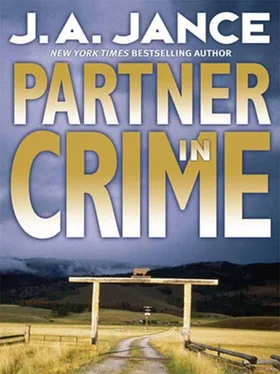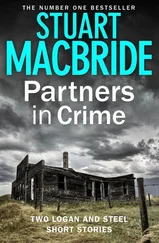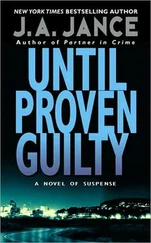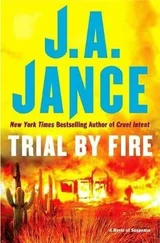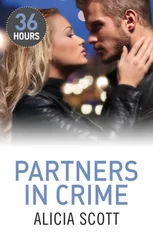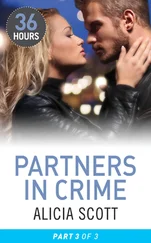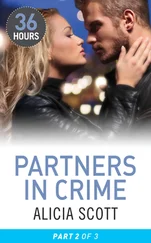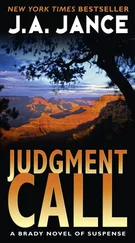Of course, there was never any question that the underpowered Sportage would catch up. The best I could hope for was to keep the Crown Vic in sight. It rounded the traffic circle and took off in what I judged to be a southwesterly direction. As I turned off the traffic circle myself, I thought at first that I’d lost her. Then, after coming through two subdivisions, past a mysterious no-visible-reason stoplight and through what looked like a genuine slum, I caught sight of her again.
From what I could tell, Bisbee is made up of little separate knots of tumbledown buildings strung together by strips of failing blacktop. In between are big chunks of undeveloped desert. By the time Sheriff Brady made it to the next little burb, I had closed some of the distance between us. Signaling for a left-hand turn, she paused at yet another traffic light. That slight delay gave me time enough to draw even nearer.
I, of course, had to stop at the light, too, and wait for what seemed an interminable length of time. Eventually, though, when the light changed, I could still see Joanna Brady’s car, speeding away on a straight downhill stretch. We seemed to be headed toward a solitary mountain that rose up in front of us some distance away.
Going downhill, the Sportage did a little better. After a few more little pieces of town, we were in desert again. What I wouldn’t have given to be driving my 928 about then. Barring that, it would have helped to have a police radio with me. At least I would have had some idea what was happening.
The next time the Crown Vic made a turn it was onto a smaller road that bordered a golf course. I guess I was surprised to see a golf course sitting there like a little emerald-green oasis in the middle of an otherwise unremittingly brown desert. There was a marked golf-cart crossing at the entrance. Naturally I had to stop and wait for not one but two golf carts to dawdle their way into the small but jam-packed RV park that faced the course. In the process I really did lose sight of Joanna’s Crown Vic.
Cursing under my breath, I drove to the far end of the course and looked around. Still I saw nothing. Then I stopped the car, got out, and listened.
The place was quiet. At first all I heard was a stiff breeze blowing from the west. But then, carried on by the wind, I heard the faint but familiar chatter from a nearby police radio. Even if the radio wasn’t Sheriff Brady’s, she wouldn’t be far from the one I was hearing.
I got back into the Sportage and drove. I roamed through several blocks of gravel-topped streets where a series of very old wooden and red-dirt buildings seemed intent on melting back into the desert. I found what I was looking for when I came to where a patrol car with flashing lights was parked astride a red-dirt trail. The officer signaled for me to stop. I pulled up next to a big bony dog who lay beside the road, unconcernedly observing the action. His shaggy black coat was tinged red by a layer of dust. The officer, who was now engaged in putting out a string of flares, booted the dog out of the way. Shaking off a cloud of dust, the dog sauntered off.
With the dog gone, the scowling deputy turned his illtempered gaze on me. “Sorry, buddy,” he said. “This is a crime scene. No unauthorized personnel allowed beyond this point.”
“My name’s Beaumont,” I said, passing him my badge. “Special Investigator Beaumont. It’s okay,” I added. “Sheriff Brady knows I’m here.”
He squinted at the badge and compared my face to the picture on my ID. “All right, then,” he said. “Pull over to one side so your vehicle’s not blocking emergency access.”
Poor guy , I thought, feeling almost guilty as I followed his instructions. She’ll have his butt for letting me through .
I decided my best course of action was simply to act as though I belonged. I left the car with the keys in it. Mimicking the dog’s unconcerned attitude, I sauntered past the deputy who, by then, was busy turning someone else away. I walked through several blocks of what looked like old-time military barracks. And I do mean old. The place came complete with a long, dilapidated building that had clearly been a stable. It took a few minutes for me to realize that I hadn’t wandered into a moldering Western movie set. This was truly the genuine article – an old U.S. Cavalry station.
By then I could see Sheriff Brady. She stood in a huddle with Frank Montoya and a plainclothes guy I hadn’t seen before.
She caught sight of me while I was still fifty feet away. Breaking out of the huddle, she marched toward me, furious and practically breathing fire.
“What have we got?” I asked casually, thinking that my well-placed “we” might mollify her just a little.
It didn’t. “What the hell are you doing here?” she demanded.
I expect women to yell when they’re upset. That’s what I’m used to, anyway – ranting and raving, if not outright screaming. That wasn’t Joanna Brady’s style. She barely whispered her question, but the effect was the same.
“Look,” I said reasonably, “I’m trying to do my job. Your deputy back there told me there’s been another homicide. I thought maybe it might have something to do with those two missing-”
“Get out!” she ordered.
“But Sheriff Brady, I thought we were supposed to be working together on-”
“I said, ‘Get out!’ and I meant it.”
“I just-”
“You just nothing! Go!”
More officers were showing up by then, and I could see she wasn’t going to change her mind. So I left. I put my tail between my legs and beat it back to the Sportage. A woman wearing golf course duds was chatting with the unfortunate deputy. No one could have overheard what Sheriff Brady was saying to me, but her hand gestures had spoken volumes. By then the deputy had figured out that he had made a potentially career-stopping mistake in letting me through. He shot me a disparaging look as I passed, but I ignored it. What did he expect me to do? Apologize?
I had folded myself back into the Sportage and was wondering what to do next when somebody tapped on my window. When I rolled it down, the lady in the golf clothes, who wore her blond hair in a wild frizz of curls, gave me a bright smile.
“Yes?” I said.
She reached in through the opened window and handed me a card. “Marliss Shackleford,” the card said. “Columnist. The Bisbee Bee .”
“Glad to make your acquaintance,” she said, batting her eyes.
Under normal circumstances, I wouldn’t be caught dead talking to a reporter. But I was currently at war with Sheriff Joanna Brady. That meant all bets were off.
I held out my hand. “Special Investigator J.P. Beaumont,” I said. “Glad to make your acquaintance.”
WHEN I INVITED MARLISS SHACKLEFORD to come up to the Copper Queen Hotel so we could talk, she jumped at the chance. “If you don’t mind, though,” she said, “I’d like to go home and change first.”
“Sure,” I said. “I’ll see you there.”
As I walked into the lobby, the desk clerk caught my eye and waved to me before I could step into the elevator. “There you are,” he said. “A call for you. I was about to take a message. If you want, there’s a house phone over there.”
He pointed to an old-fashioned black phone hidden away in the corner, right next to a darkened hotel-lobby jewelry stand that was evidently closed for the evening.
“Is that you, Beau?” Attorney General Ross Connors asked. “Francine told me you called. How’s it going?”
“Let’s just say Sheriff Brady didn’t exactly welcome me with open arms.”
“I didn’t expect she would. Are her people making any progress?”
“They brought a suspect in for an interview today. He was accompanied by his attorney. As far as I know, however, no arrests have been made.”
Читать дальше
